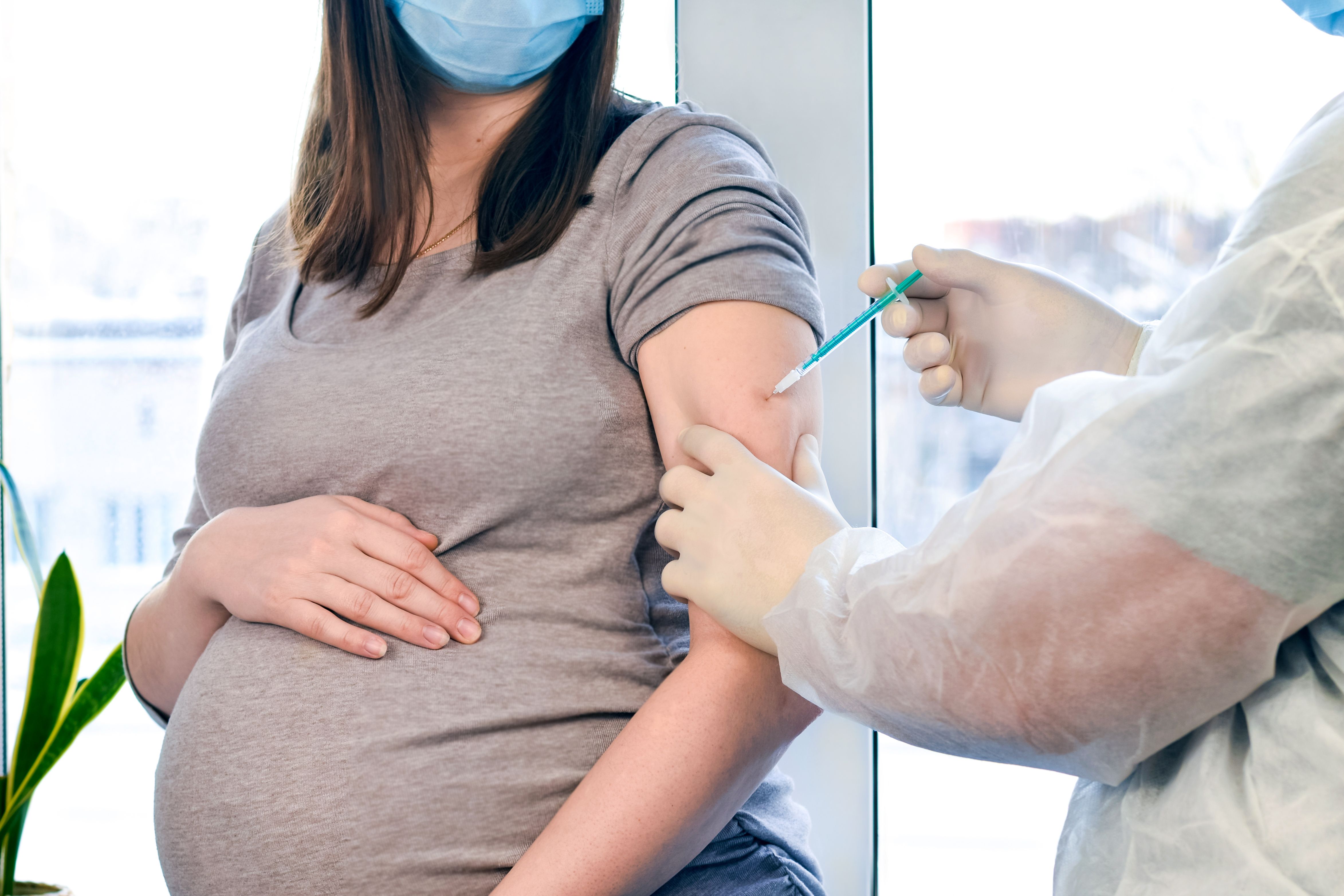- Center on Health Equity & Access
- Clinical
- Health Care Cost
- Health Care Delivery
- Insurance
- Policy
- Technology
- Value-Based Care
Are Maternal Vaccines Effective Against Infant Influenza-Associated Hospitalizations?
Maternal vaccination during pregnancy may provide important protection before infants are eligible to receive a vaccine, a study suggests.
Maternal vaccination was linked to reduced odds of influenza-associated hospitalizations and emergency visits in infants younger than 6 months, with the greatest effectiveness observed among infants younger then 3 months, those born to mothers vaccinated in the third trimester, and against influenza-associated hospitalizations, according to one study.

“Given the dual benefits offered by influenza vaccination, obstetricians should determine the optimal timing for administration of influenza vaccine for each individual pregnancy considering the benefits to the pregnant person, the fetus, and the infant,” wrote the researchers of the study. “However, even with these changes in clinical considerations and trends identified in our data, the primary goal is to offer vaccination at any time during pregnancy, before or during the influenza season, for all pregnant persons to reduce missed opportunities for vaccination.”
This multicenter, multiseason, prospective case control study is published in JAMA Pediatrics.
Because influenza infection during pregnancy is associated with severe maternal disease and may be associated with adverse birth outcomes, influenza vaccine during pregnancy offers safe and effective protection for young infants. However, recent evidence is limited.
In this study, the researchers aimed to evaluate the effectiveness of influenza vaccination during pregnancy compared with influenza-associated hospitalizations and emergency room (ER) visits in infants.
The study evaluated data from the 2016 to 2017 through 2019 to 2020 influenza seasons and included infants younger than 6 months with an ER visit or hospitalization for acute respiratory illness from 7 urban pediatric medical institutions in the United States.
Additionally, maternal vaccination status was obtained using immunization information systems, medical records, or self-reports. Furthermore, vaccine effectiveness was measured by comparing the odds of maternal influenza vaccination at 14 days or more before delivery in infants with influenza compared with those without. This data was analyzed from June 2022 to September 2023.
The study identified a total of 3764 infants, in which 223 had influenza and 2541 had no influenza. Of these infants, 2007 (53%) were born to mothers who had been vaccinated during pregnancy.
Vaccine effectiveness was observed in 34% of infants (95% CI, 12-50), overall. Additionally, vaccine effectiveness was 39% (95% CI, 12-58) against influenza-associated hospitalizations, and 19% (95% CI, Are Maternal Vaccines Effective Against Infant Influenza-Associated Hospitalizations (95% CI, –24 to 48) against ER visits.
Furthermore, effectiveness was 53% (95% CI, 30-68) among infants younger than 3 months, 52% (95% CI, 30-68) among infants with mothers who were vaccinated during the third trimester, and 17% (95% CI, –15 to 40) among those with mothers who received vaccination during the first or second trimesters.
Importantly, these findings also highlighted disparities associated with influenza vaccination during pregnancy. For instance, infants born to unvaccinated mothers were more likely to have underlying conditions and to be non-Hispanic Black, have public insurance, not breastfeeding, and born prematurely.
The researchers also acknowledged some limitations to the study, including being unable to gather information for some mothers and included self-reported vaccination information when timing of receipt during pregnancy was given. Furthermore, the researchers did not collect information about maternal influenza infection during or after pregnancy and did not include data on influenza vaccination prior to conception or postpartum.
Despite these limitations, this study supports the use of maternal influenza vaccination, finding it was associated with reduced odds of influenza-associated hospitalizations and ER visits in infants.
“We found infant protection afforded by maternal influenza vaccination was greatest in the youngest infants (those younger than 3 months) and when vaccine was administered during the third trimester,” wrote the researchers. “Additionally, we observed effectiveness with higher point estimates but overlapping confidence intervals for infants born to mothers receiving current season vaccination compared to our primary analysis of those who received either current or prior season vaccine (42% vs 34%).”
Reference
Sahni LC, Olson SM, Halasa NB, et al. Maternal vaccine effectiveness against influenza-associated hospitalizations and emergency department visits in infants. JAMA Pediatr. Published online December 18, 2023. doi:10.1001/jamapediatrics.2023.5639
The Breakdown: Breast Cancer Research Awareness Day
August 19th 2025Breast cancer is the second most common cancer among women and the second leading cause of cancer-related deaths among women in the US. In light of Breast Cancer Research Awareness Day, The American Journal of Managed Care® breaks down the most recent advancements in breast cancer prevention, screening, and therapies.
Listen
